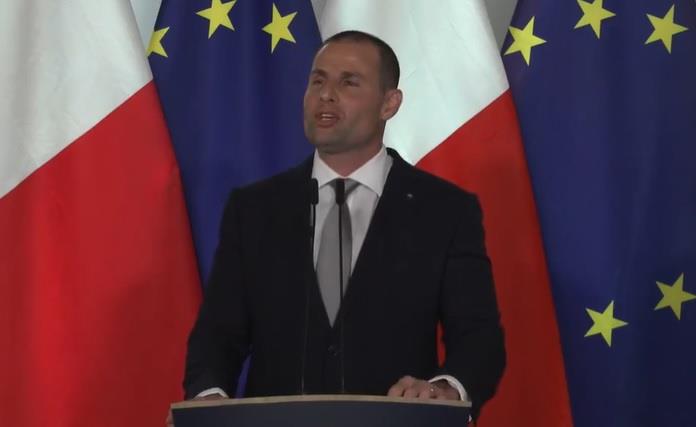
Prime Minister Robert Abela has continued to target the Magistrate who led the Vitals inquiry, claiming that as things stand today, until now justice ‘is not being seen to be happening,’ in reference to the inquiry process.
Abela has been questioning the timing of the inquiry’s conclusion, so close to the MEP and local council elections, and has more recently also been questioning whether those facing charges in court “were given the right” to be heard during the inquiry stage. He is stressing on the need for justice not only to be done, but to be seen to be occurring also.
He stressed that he has limited the statements he has made to the inquiry’s process, rather than the merits of the inquiry. He also questioned how many procedures there will be in which the same questions he had asked about the inquiry will be raised.
“What is important is that there be peace of mind. When there is peace of mind about a process that is led in a neutral and just way, independently, then one respects those decisions. But to have that peace of mind that decisions are just, one needs to have a process that is seen to be being handled justly. Justice must not only occur, but be seen to occur. Up until now we have a situation where, as things stand today, after four and a half years of an inquiry, justice is not being seen to be happening.”
“As to whether there was justice or not… you can say its an investigation and not a judicial process, which is true, but I would expect peace of mind that things are happening in a way that gives peace of mind that we are truly speaking about justice.”
“I think the majority of the people don’t believe that the peace of mind exists.”
Abela was asked questions as to whether the government would accept the decision that the courts will make, and whether he would be asking similar questions he is asking about the inquiry, if guilt is found.
During his answers, he also questioned how many constitutional procedures lie ahead.
“I don’t want to anticipate what will happen, but from what we have seen till now – having the timing that precisely coincides with the opening of the electoral campaigns, that in itself raises many doubts about the process. I am speaking about the process not the merits of it (the inquiry).” He wants the inquiry to be published as people can then make their own reflections, even in terms of what happened during the process, “whether it is true or not that a number of people who the magistrate ordered be charged weren’t given the right to explain their position.”
Asked whether he has faith in the courts in general, he said the government strengthened the courts, mentioning the updated method of appointments of members of the judiciary, where the government was removed from the process. Among other things, he mentioned that government removed its absolute power to appoint a chief justice, which now requires a 2/3rds majority in Parliament.
“The trust this government placed in the court is there and emerges from the laws we amended. I expressed my disappointment that a decision of one person negatively reflected on the many magistrates and judges who are doing their work well. That is my worry. Why did this episode have to tarnish the judiciary’s work? I am convinced that there are many judges and magistrates who, like the people, have their doubts of the timeline.”
“The timeline was so indicative,” he said, that it can never give peace of mind to a person who believes in justice to say “that I have peace of mind that this process was carried out well. I have those doubts.”
While speaking to the press, he also said that given the accused were served summons, they will not be arraigned under arrest.
“Those being mentioned will appear at the court appointed date and time, freely, and will go back home freely after the hearings. There will not be a question of whether or not they will be granted bail as there will not be an arrest,” he said, adding that he had not heard of any arrests being mentioned.
Abela stressed the importance of “tranquillity and calm.”
The court hearings, he said, will be the beginning of the judicial process where all that was seen in the inquiry process that raised doubts, must be corrected.
He later also said that he hopes everyone’s starting point in the coming procedures be “the presumption of innocence and not presumption of guilt, and that everyone will be given the right to defend their position following which the court can reach their decisions.”
“The importance of justice being seen to be done neutrally, freely and open to the public where everyone is given the opportunity to defend themselves is crucial as then it leads to serenity when the final decision is taken.”
He said that the inquiry raised more doubts than offered solutions and raised more doubts about the process than resulted in peace of mind, “that is when doubts arise.”
“When you have a court that leads things independently and impartially, and this is why we strengthened the independence of the judiciary, to give the people peace of mind that when there is a final decision whether you agree or not with it, you would be convinced that the only interest there was would have been the right administration of justice. Up until now, from what I’ve seen about the inquiry I am not comfortable to express this understanding.”







